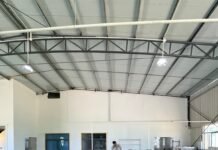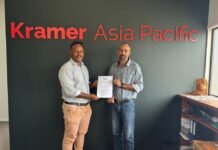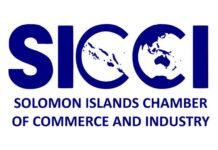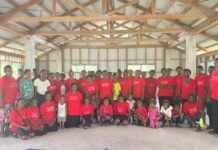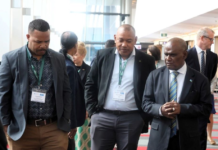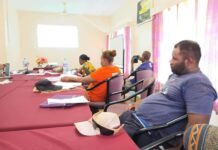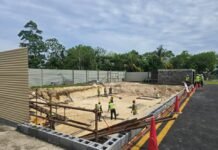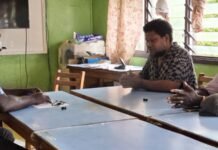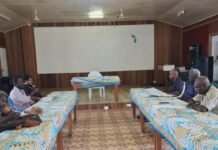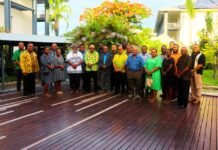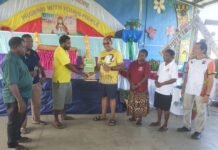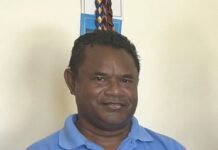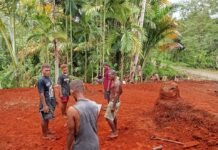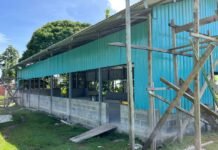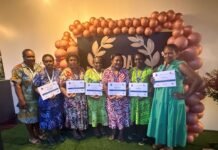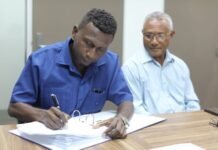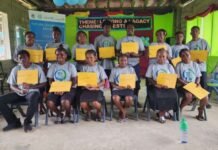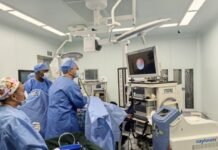THE Ministry of Health and Medical Services (MHMS) National Rehabilitation and Disability Division, as the government’s disability focal point, in collaboration with the WHO Country Office and the WHO Western Pacific Regional Office – Disability and Rehabilitation, completed a one-day awareness and policy dialogue session for the Heads of Divisions and Program Coordinators of MHMS recently at the Heritage Park Hotel in Honiara.
The approach of “reaching inward” was undertaken for awareness and advocacy on mainstreaming disability in health services, reflecting on the saying, “Start in Jerusalem before reaching the outermost parts of the earth.”
The sessions covered awareness on the Solomon Islands National Disability Inclusive Development Policy 2023-2031, the United Nations Convention on the Rights of Persons with Disabilities (UNCRPD), ratified by the Solomon Islands Government in June 2023, equity and rights advocacy in health systems and services, and a brief report on the National Referral Hospital (NRH) access audit findings.
Participants at the session included representatives from National Nursing, World Bank Infrastructure Unit, Non-Communicable Disease, Nutrition, Health Promotion, NRH Infrastructure, National Pharmacy, NRH Ear-Nose-Throat, NRH Occupational Health and Safety, Reproductive Maternal Adolescence and Child Health (RMACAH), NRH Nursing, Mental Health, Public Health Surveillance Emergency Unit (PHSEU), NRH Dietary, Environmental Health- RWASH, CBR Temotu, Gender Based Violence , TB/Leprosy and Honiara City Council Health Services.
In his remarks at the dialogue, WHO Country Director Dr. Sobel asked participants to imagine being unable to access healthcare due to facilities not being designed for their needs, unaffordable transportation, or worse, a healthcare system unprepared to address their specific needs. He noted that this is the daily reality faced by thousands of Solomon Islanders. One in nine Solomon Islanders—more than 80,000 people—live with some form of disability. Globally, this number exceeds 1 billion, making people with disabilities one of the largest marginalized groups in the world.
Dr. Sobel highlighted that these individuals are not only facing personal challenges but are also impacted by societal barriers. These barriers affect everyone, as when people with disabilities are unable to contribute fully, society loses their potential.
“However, despite this there is hope. The Solomon Islands Government, through MHMS, has committed to addressing these challenges with the launch of the National Health Strategic Plan 2022-2031, the National Disability Inclusive Development Policy 2023-2031, and the National Rehabilitation Strategic Plan 2022-2031. These initiatives are not just documents; they are a promise to every Solomon Islander of a healthcare system that leaves no one behind”, Dr Sobel said.
He called on government officials, health providers, community leaders, and all Solomon Islanders to break down the barriers holding back fellow citizens and to create a Solomon Islands where everyone can access the healthcare they need, where disabilities do not define a person’s worth or limit their potential.
“Together, we can build a more inclusive and equitable health system, ensuring health as a right for all”, said Dr Sobel.
WHO Technical Officer for Disability and Rehabilitation, Mr. Sunil Pokhrel, emphasized the importance of health equity for persons with disabilities, citing that individuals with disabilities face up to 20 years of premature death and double the risk for certain health conditions due to limitations in access to healthcare. He pointed out that structural factors, social determinants of health, disease risk factors, and health system factors all contribute to these inequities. Health facilities are six times more likely to hinder access, and transportation is 15 times more hindering for persons with disabilities.
“These inequities are unfair and avoidable, disproportionately affecting persons with disabilities. Therefore, disability mainstreaming is a priority for every health program within the Universal Health Coverage (UHC) agenda to ensure accessible healthcare services without financial burdens”, said Mr Pokhrel.
National Rehabilitation and Disability Division Director, Mrs. Elsie Taloafiri, stressed that health is one of the main priorities of the Solomon Islands National Disability Inclusive Development Policy, aligning with Article 25 of the UNCRPD, which recognizes the right of persons with disabilities to the highest attainable standard of health without discrimination. She emphasized that now that the government has ratified the UNCRPD, MHMS, as the custodian of health services, is mandated to create an accessible and inclusive health system for all, including persons with disabilities and the elderly.
A roundtable policy dialogue was also facilitated, where participants discussed gaps and recommendations within their divisions and programs to incorporate disability inclusion into their systems and services through mainstreaming disability in the health sector.






